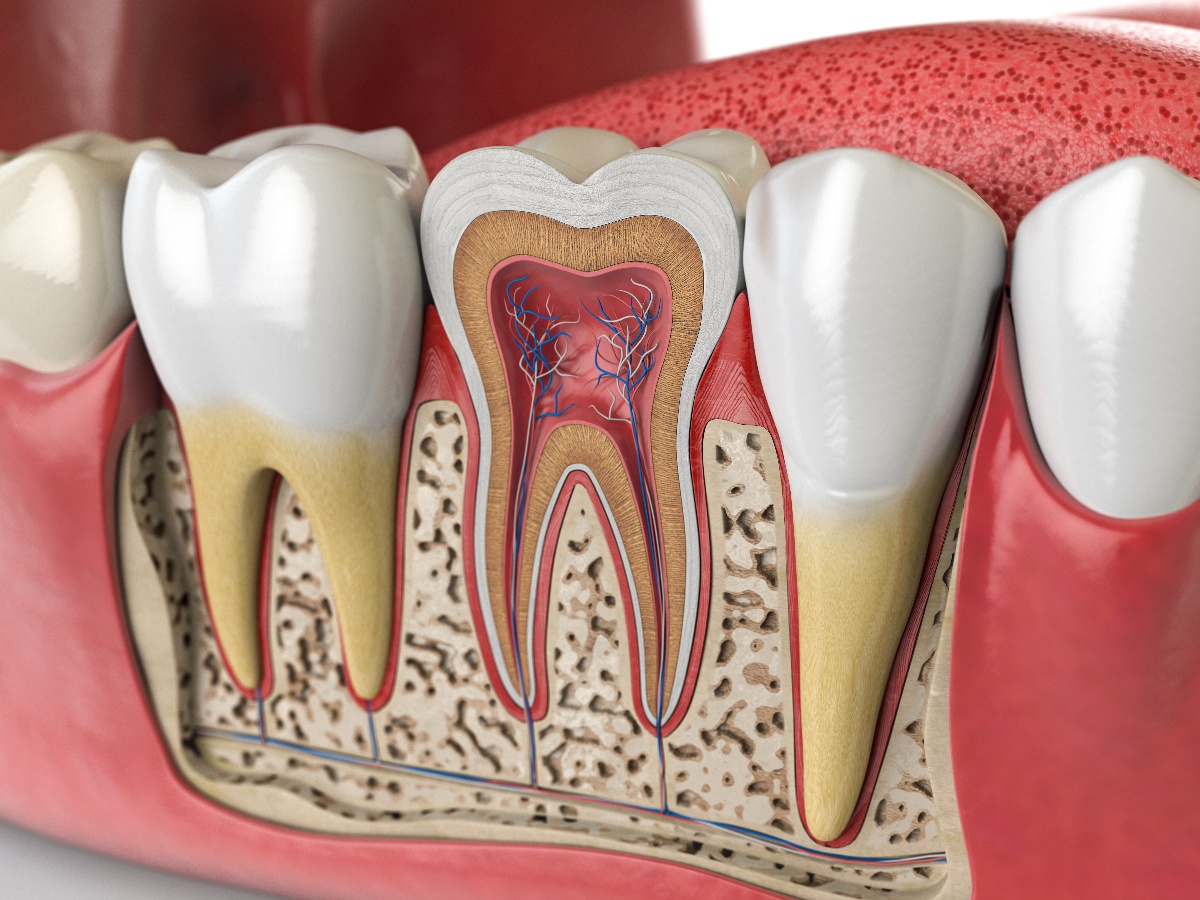Few things can change your day like having a toothache. Whether your pain begins during the night, while eating, or during recreational activities, you want relief as soon as possible. Understanding the anatomy of teeth and the causes of a toothache can help you know what is going on with your tooth. You then can better decide what to do for your toothache.
The Distinctive Anatomy of a Tooth
Teeth appear to be simple structures yet are pretty complex and unique organs. Scientists classify them as ectodermal organs, similar to hair and skin. Although teeth are not essential to life, they serve many purposes in our nutrition, communication, and appearance.
Teeth are protected by a hard, white, shiny outer layer of minerals known as enamel. Enamel is harder than bone but does not share a bone’s ability to regenerate constantly. If you break a bone, it can mend itself by making new bone. If you break a tooth, you need a dentist to repair it.
As hard as enamel is, it is vulnerable to losing minerals that create a defect known as a dental cavity. If a cavity is not treated early, it can expose the next layer of a tooth, dentin. Dentin is much softer than enamel and contains microscopic tubes that reach into the innermost layer of a tooth, the dental pulp.
The dental pulp contains small arteries, veins, lymph vessels, and nerves that enter the tooth through a tiny hole at the tip of each root. You may have heard this soft tissue referred to as the nerve of the tooth. The health of dental pulp is of primary significance if you experience sensitivity or mild to severe tooth pain.
Why Do Toothaches Hurt So Bad?
It is often hard to believe that pain in a single tooth can be so excruciating that it prevents working, playing, eating, or sleeping. Yet, many people seek immediate emergency dental treatment to relieve a throbbing toothache at all hours. Understanding several features of a tooth can help solve the mystery of why a toothache hurts so badly.
- The dental pulp is a small soft tissue mass encased in a hard tooth structure.
- This soft tissue has the potential to become inflamed like any other soft tissue in your body.
- The dental pulp has no room to swell once it becomes inflamed.
- Inflammation triggers your immune system to send cells to heal damaged tissue.
- Your immune system’s potential to heal an inflamed pulp is limited; inflammatory cells have restricted access to damaged tissue encased in the hard tooth structure.
- Mild inflammation typically causes tooth sensitivity. Moderate to severe inflammation can cause a severe toothache.
- One of the reasons for the intensity of a toothache is the pulp’s inability to swell as the inflammation worsens. This places extreme pressure on the tiny pulp nerves.
The Possible Causes of a Toothache
Considering the daily demand we place on our teeth, their resilience to pain and damage is remarkable. We use our teeth to chew foods of variable hardness, temperature, and consistency. Yet, they typically last a lifetime with proper care. Problems can develop, however, no matter how well you care for your teeth. When toothaches occur, it is usually from one of these causes:
- Tooth decay. Once a cavity penetrates the enamel into the dentin, it can cause pulp inflammation.
- Abscessed tooth. Without dental treatment, an inflamed dental pulp eventually becomes infected. This can create pain within and outside the tooth in the surrounding gum and bone.
- Cracked tooth. You can crack a tooth when chewing food, grinding your teeth, or bumping it against something. Even a tiny hairline crack can irritate the pulp and cause severe pain to pressure, hot, and cold.
- Trauma. Trauma to your mouth can knock a tooth out. If this occurs, you should contact your dentist immediately. Most blows to the mouth either fracture a tooth or cause a concussion-type injury. Either of these injuries can lead to an inflamed pulp and toothache.
- Gum disease. Mild gum disease can cause transient sensitivity to hot and cold. However, the more severe periodontitis can affect the pulp and result in a toothache that requires pulpal and periodontal treatment.
- Bruxism. Unconsciously grinding your teeth at night can cause problems such as prematurely worn teeth, cracked teeth, headaches, and TMJ dysfunction. Another possible side effect of the excessive stress placed on teeth while grinding is pulpal inflammation. You can have a severe toothache in a normal-appearing tooth due solely to bruxism.
Home Remedies for a Toothache
Depending on the cause, your toothache may go away on its own. For example, if you bite on hard food, you can cause sensitivity that diminishes and heals in a day or two. Likewise, tooth pain caused by gum irritation may resolve after resuming regular brushing and flossing. Other toothaches, however, cause more severe pain and prompt you to try other steps at home to remedy your pain.
Although you should still contact your dentist, you can do the following to help bring temporary relief from your toothache:
- Warm salt water rinse. Gently rinsing your tooth can dislodge any food debris. Additionally, salt is a natural antibacterial agent that can help reduce inflammation.
- Clove oil. Eugenol, the active ingredient in cloves, has long been used in dental materials. Its anti-inflammatory properties have made it a popular analgesic in Ayurvedic and traditional Chinese medicine. Clove oil or powder can be applied around a tooth for temporary toothache relief.
- Over-the-counter analgesics. Ibuprofen and Tylenol can help alleviate tooth pain until you see your dentist.
Dental Treatments for a Toothache
Your dentist will take a thorough history of your symptoms. Next, you will receive a complete oral examination, including dental x-rays and various testing procedures. For example, if the symptoms indicate involvement of the dental pulp, your dentist may test your tooth with hot, cold, biting pressure, and palpation of the surrounding soft tissues.
After diagnosing the cause of your tooth pain, your treatment could include one or more of these procedures:
- Professional teeth cleaning if you have gum inflammation.
- Dental filling if you have a cavity.
- Root canal therapy if you have an abscessed tooth.
- A night guard to protect your teeth from the effects of bruxism.
Schedule an Appointment
The team of oral health care professionals at Palmetto Dental Arts can help you with a comfortable resolution of your toothache. Contact us online or call for an appointment for an oral examination and treatment plan based on the cause of your pain.





